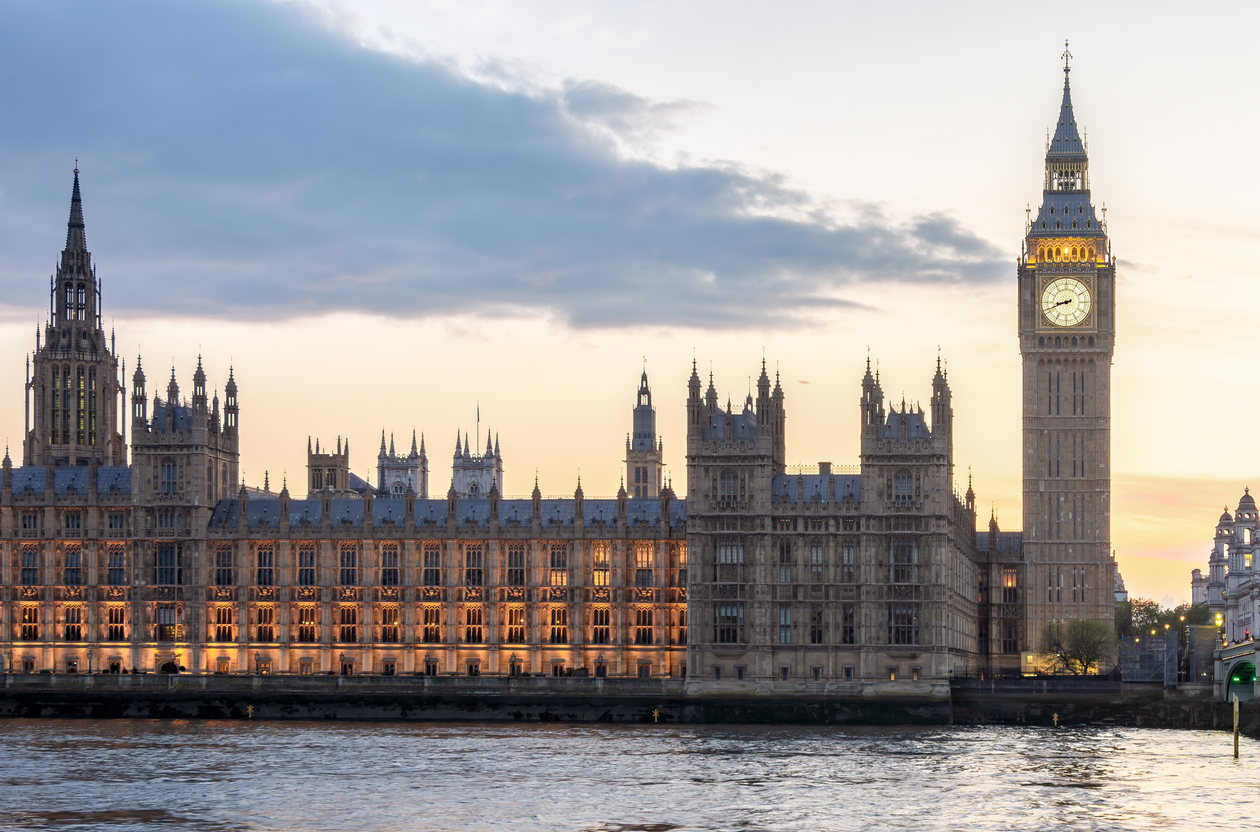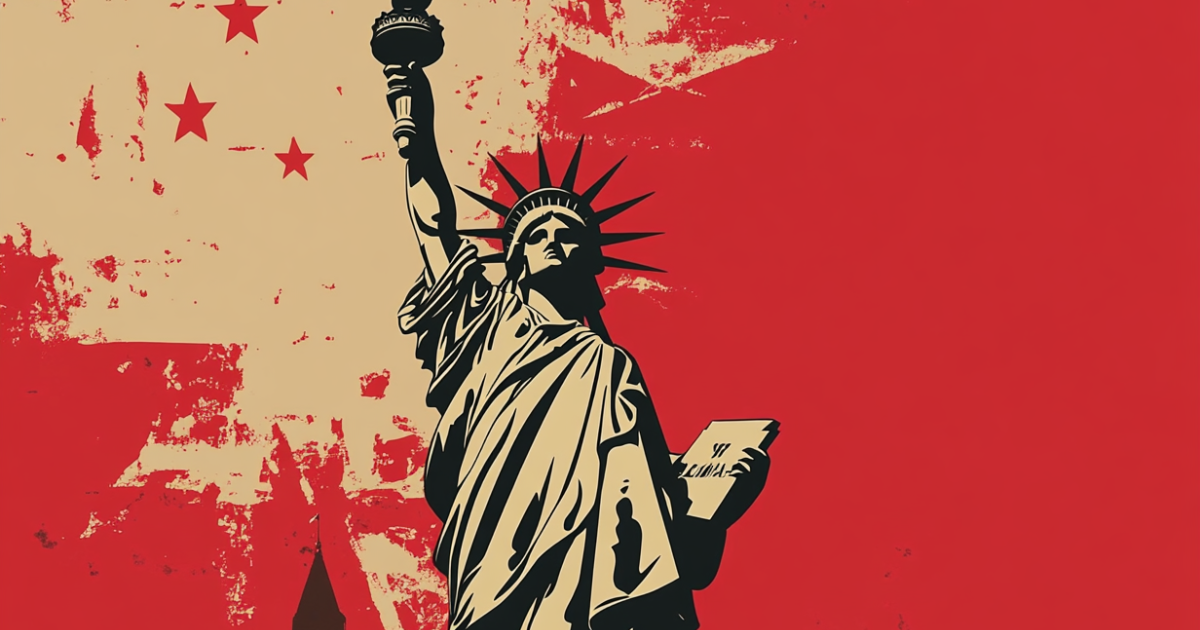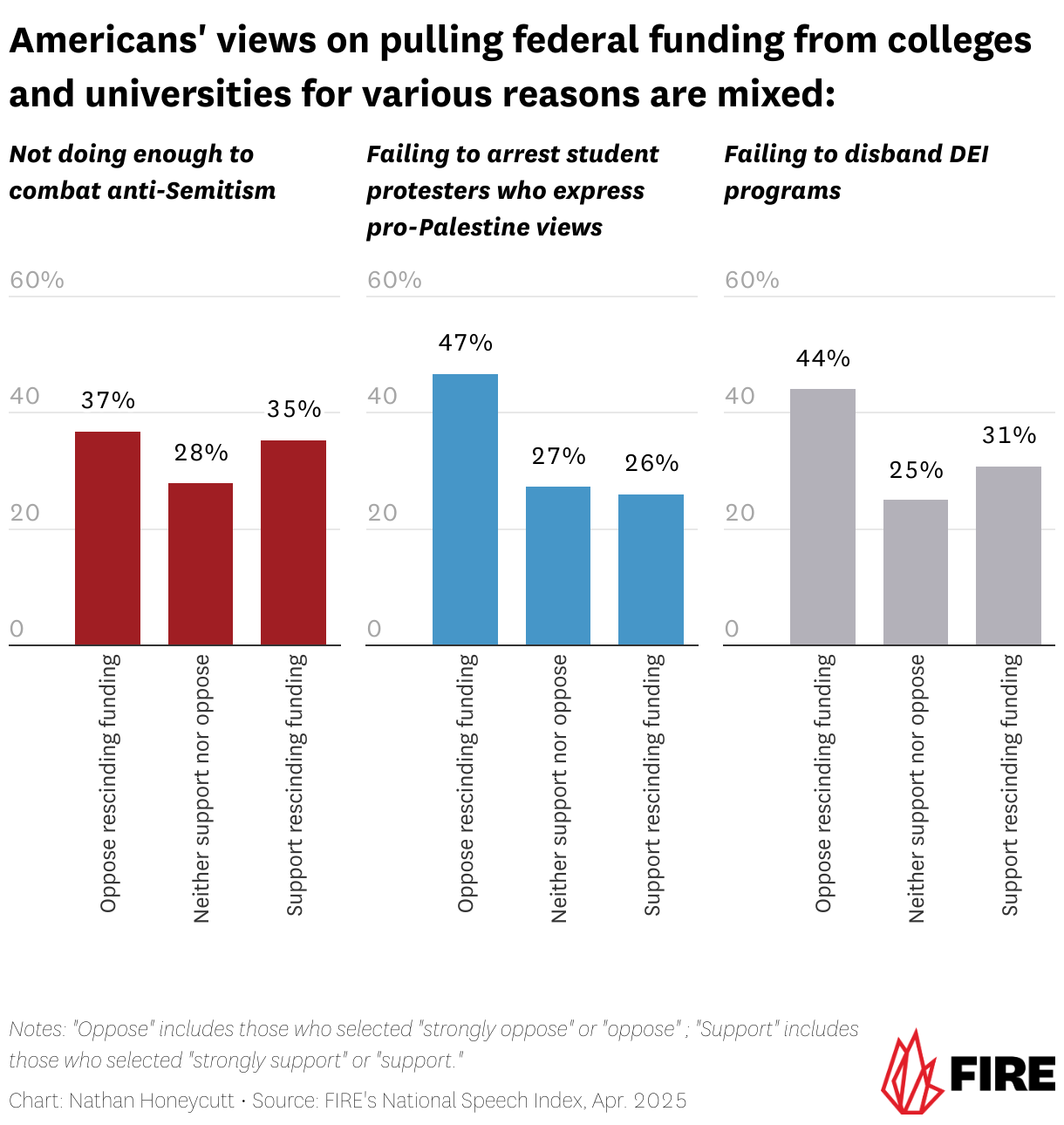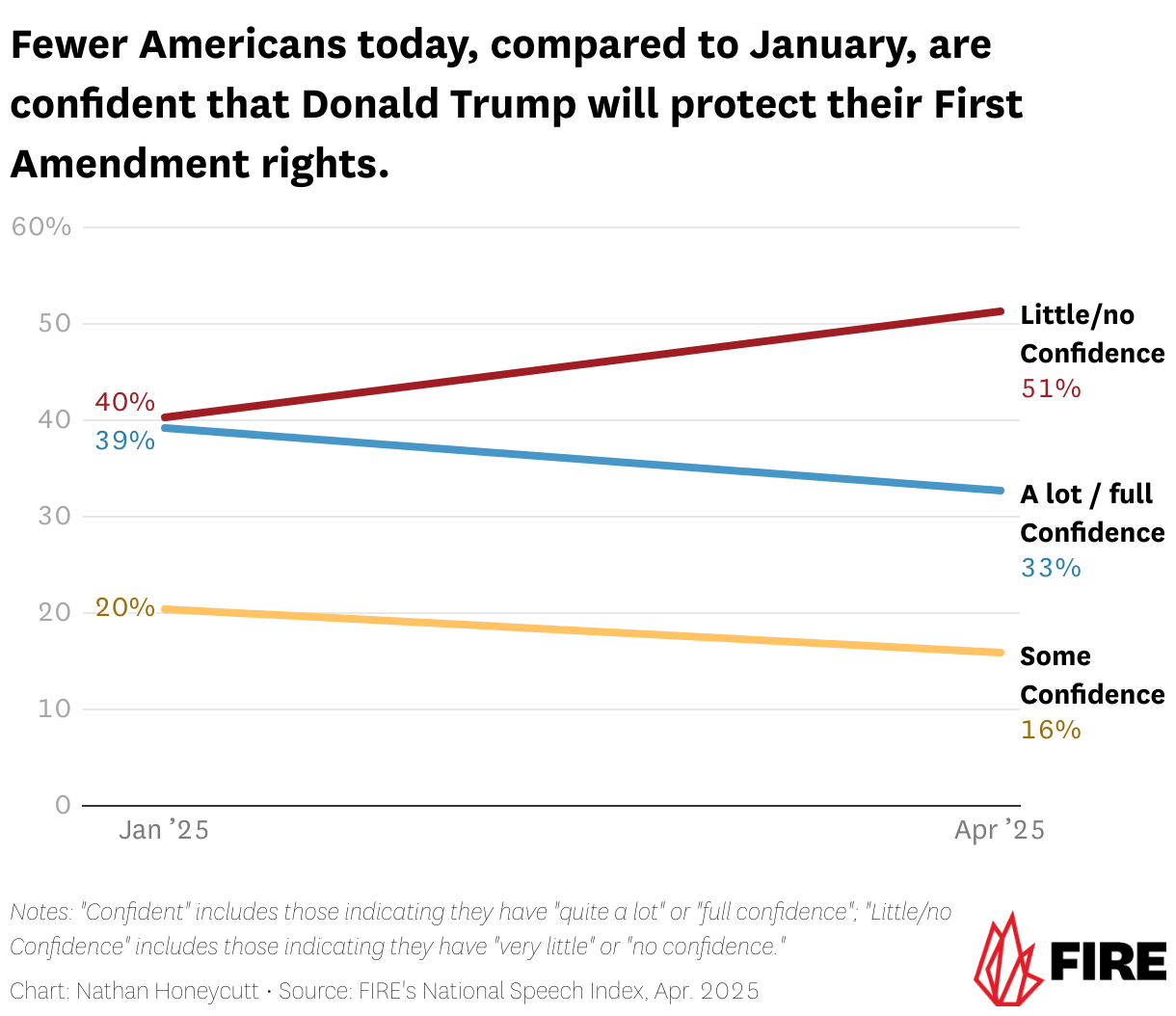Just 44 days before duties on it go live, but some 389 days since it closed a consultation on it, the Office for Students (OfS) has finally published Regulatory advice 24 – its guidance to universities and colleges in England on freedom of speech that flows from the Higher Education (Freedom of Speech) Act (HEFoSA).
The timings matter partly because it’s mid-June, there won’t be many (if any) big committee meetings left (let alone processes designed to engage with people on policy development ahead of approval), and it was OfS itself that fined the University of Sussex partly over the proper approval of some of its policies.
And it’s not as if there are only minor drafting changes. An 11,773 word draft has become a 23,526 word final, and the list of 30 illustrative examples has grown to 52 – despite the fact that this new version omits all the duties on students unions (which the government announced last year it intends to repeal), and is now also silent on the free speech complaints scheme.
All the detailed and prescriptive expectations in the original draft over how that should be promoted have gone – largely because we’re all waiting for Parliament to debate (sensible) changes that will cause students to have to use the Office of the Independent Adjudicator (OIA), rather than OfS, to resolve any complaints in this area.
Alongside, there’s surely a record-breaking 788 paragraph analysis of responses and decisions off the back of the eleven question consultation, some alarming-sounding polling that will likely be making the news, and some short guides for students and staff.
A lot of the new version of the guidance adds more detail into the examples – many are now more realistic, plenty are better at signalling the differences between “good ideas” and minimum expectations, and a whole host of them are now more accurately qualified with reference to key legal principles or tests, many of which have been emerging in case law since OfS started its consultation.
That said, some are still so preposterous as to be useless. If there really is a college somewhere that requires students to seek written permission a month in advance to hand out leaflets or post flyers, where those flyers must be posted on a single designated noticeboard which is both small and on a campus where flyers may not be posted anywhere else, I’ll eat my hat – or maybe my pudding at the formal dinner at whichever Oxbridge college authors were reminiscing about when Example 38 was drafted.
As there are 52 of them, this initial article doesn’t dive into all of the vignettes comprehensively – although doubtless a number of them (not least because of the judicious use of qualifiers like “depending on the facts of the case”) will continue to cause readers to cry “yeah but what about…” – which is presumably why OfS initially attempted to let lessons unfurl from the casework rather than publish guidance. And we may well end up looking at some of them in more detail in the coming days and weeks.
What I have tried to do here is look at the major ways in which the guidance has developed, how it’s handling some of the bigger questions that both universities and their SUs were raising in responses during the process, and what this all tells us about OfS’ intended approach to regulation in this area as of August.
As a reminder, we’re talking here about the duty to “secure” freedom of speech on campus (A1 in HEFoSA), and the expectations that OfS has around the requirements for a souped up Code of Practice (A2) for each provider. There’s no guidance (yet) over the “promote” duty (A3), and to the extent to which the previous version strayed into those areas, they’ve largely been removed.
The sandbags are coming
If we were to identify one theme that has dominated discussion and debate over the Free Speech Bill ever since then universities minister Michelle Donelan stumbled, live on Radio 4, into an apparent contradiction, it would be where free speech (to be protected and promoted) crosses the line into harassment – which of course, under a separate heavy new duty as of August 1st, is something to be actively prevented and prosecuted by universities. Middle grounds are no longer available.
The good news is that the section on reconciling free speech duties with equality law, anti-harassment provisions, and other legal requirements is better than anything else OfS has published to date on the interactions and fine lines. So detailed, for example, are many of the sections that deal with harassment on campus that at times, it’s a lot more helpful than the material in the actual guidance on registration condition E5 (Harassment and Sexual Misconduct).
People often, for example, find others’ conduct to be unpleasant or disagreeable – Para 47 reminds us that the concept of harassment in the Protection from Harassment Act 1997 is linked to a course of conduct which amounts to it, that a course of conduct has comprise two or more occasions, that the conduct must be “oppressive and unacceptable” rather than just “unattractive or unreasonable”, and must be of sufficient seriousness to also amount to a criminal offence.
Similarly, the judgement of harassment isn’t purely subjective – it applies an objective test based on what a reasonable person would think, which helps provide a consistent standard rather than relying solely on individual perceptions.
Hence in Example 1, a student publishes repeated comments on social media attacking another student based on lawful views, including “tagging” them in posts and encouraging others to “pile on”. The student’s speech is so “extreme, oppressive and distressing” that their course of conduct may amount to harassment – and so carrying out an investigation into the student based on a policy that bans harassment would not breach the “secure” duty.
Much of that flows from a newly reworked version of what counts as free speech within the law that translates some of the case law and principles set by the ECHR and the UK High Court in cases like Higgs v Farmor’s School. As such, while there’s still lines in there like “The Act protects free speech within the law – it does not protect unlawful speech”, there’s now much more helpful material on the different ways in which free speech might be curtailed or interfered with given other duties.
To get there it outlines a three step test (with some wild flowchart graphics):
- Step 1: Is the speech “within the law”? If yes, go to step 2. If no, the duty to “secure” speech does not apply.
- Step 2: Are there any “reasonably practicable steps” to secure the speech? If yes, take those steps. Do not restrict the speech. If no, go to step 3.
- Step 3: Are any restrictions “prescribed by law” and proportionate under the European Convention on Human Rights?
![]()
There’s no doubt that it’s a more nuanced and balanced reflection of the legal position than we saw in the draft – albeit that it switches between “what to do in practice” and “what to say to students and staff in theory” in ways that are sometimes unhelpful.
The problem is that the closer it gets to necessary complexity, the further away it gets from something that’s easy to understand by the very staff and students whose day to day conduct and confidence (what we might call the “culture” on campus) is supposed to be being influenced by the new duties.
More importantly, as the examples unfurl, it’s both possible to spot numerous ways in which “it’s a balance” turns into Kafka’s cake and eat it, and to see how the “reasonably practicable steps” duty turns into something genuinely hard to understand in practice.
Someone should do something
One thing that’s not gone is a tendency in the examples to signal to the outside world that the new rules will tackle the things they’ve read about in the Times and the Telegraph – until you realise that they won’t.
That Example 1 discussed above (highlighted in the accompanying press release) is a classic of the genre. On the surface it looks like OfS is tackling “mobbing”. But in reality, the whole point about pile-ons is that they’re almost never about one big evil ringleader engaging in conduct that is so “extreme, oppressive and distressing” that their course of conduct may amount to harassment.
It’s more often than not a hundred micro-oppressions having the cumulative effect of making the target feel terrible. Even if you argue that aspects of social media culture are within the influence (if not control) of a provider, in other parts of the guidance OfS seems to be saying that because each micro-act isn’t harassment, you shouldn’t be trying to meddle in the culture of the campus.
That problem becomes amplified in the section on microaggressions. In 2019, the Equality and Human Rights Commission (EHRC) found microaggressive acts to be a key component of a culture of racism on campus – and both argued that they could have an impact on equality of opportunity and good relations between different groups, and that universities must not ignore microaggressions that do not meet the definition of harassment in the Equality Act 2010 because of the cumulative impacts of repetition.
But as soon as universities started to tackle microaggressions by, for example, encouraging their reporting, various anti-EDI culture warriors started to raise concerns. Discussing a scheme launched by Sheffield SU to have their halls reps understand the concept, Spiked’s Joanna Williams argued:
They will need an odd combination of extreme sensitivity to offence – alongside a high degree of insensitivity to interrupting conversations – to point out exactly where the speakers went wrong. Presumably, candidates will also have to sit some kind of test to prove their own thought purity on all matters concerned with race and ethnicity.
The Command Paper that led to HEFoSA was also worried:
Schemes have been established in which students are paid to report others for perceived offences.
And as Report+Support tools started to open up avenues for students to raise issues such that universities could spot patterns, academics – among them a fairly obscure Cambridge philosopher called Arif Ahmed – started to complain:
The encouragement to report ‘inappropriate’ or ‘offensive’ behaviour amounts to a snitches’s charter. Any risk-averse white person will simply not engage with anyone from an ethnic minority, in case an innocent or well-meaning remark is overheard, misunderstood and reported. Whatever Downing College may think, being offensive is not an offence.
Several years on, Arif Ahmed is OfS’ Director for Freedom of Speech and Academic Freedom, asserting that his appointment and approach isn’t “political”, and launching actual regulation (Example 39) that says this:
University A promotes an anonymous reporting process. Students are encouraged to use a portal to submit anonymous reports to senior staff of “microaggressions”, which is not further defined. The portal includes free text boxes in which reporters may name or otherwise identify the individuals being accused. University A says that it may take action against named (or identifiable) individuals on the basis of any anonymous report that it receives.
…Depending on the circumstances, the existence of the reporting mechanism and portal may discourage open and lawful discussion of controversial topics, including political topics and matters of public interest.
…Reasonably practicable steps that A could now take may include remove the free text boxes from the anonymous reporting portal to be replaced with radio buttons that do not permit submission of any identifying data.
There is a legitimate, if contested, political view that structural racism is fictional, harmful or both – and that what flows from it is division via concepts like microaggressions. There’s another view that to tackle racism you need to interrogate and tackle not just skinheads hurling abuse and painting graffiti, but the insidious yet often unintended impact of stuff like this (EHRC again):
A recurring theme in our evidence was students and staff being dismissed as “oversensitive” and their experiences of microaggressions viewed as isolated incidents rather than a cumulative and alienating pattern of repeated slights and insults.
Many staff and students reported that racial harassment doesn’t only happen overtly. All too often, offensive comments were justified by perpetrators as “jokes” or “banter”. The damaging effect of repeated microaggressions is often made worse by a lack of empathy and understanding when individuals decide to speak up about their treatment.
In that “debate”, OfS has picked the side that we might have expected Arif Ahmed to pick. Whether he’s legally justified in doing so is one question – but let’s not pretend that the agenda is somehow apolitical.
And for my next trick
All of this is possible because of a central conceit in the guidance that relates back to a long-running theme in the rhetoric surrounding culture on campus – what we might call a “maximalist” approach to describing free speech, and a “minimalist “ (specific, legal thresholds) approach to harm and harassment.
Anything goes unless it specifically breaks this specific law, and if you pretend otherwise you might end up “chilling” free speech.
You might. But while insisting on an objective test to determine whether harassment has happened is a central feature, no such test of objectivity is then applied to whether a chilling effect has occurred – it becomes, in effect, about “potential” and feelings. Hence in its Sussex investigation, OfS said:
…a chilling effect arose as a result of the Trans and Non-Binary Equality Policy Statement and the resulting breach of condition E1. By “chilling effect”, the OfS means the potential for staff and students to self-censor and not speak about or express certain lawful views. Staff and students may have self-censored as a result of the policy because they were concerned about being in breach of the policy and potentially facing disciplinary action for expressing lawful views.
So having established that “harassment” has to amount to something objectively criminal, while “chilling” is in the eye of the Director, OfS is able to get away with railing against another newspaper favourite – by all but outlawing requiring academic staff to issue trigger warnings. Example 50:
Depending on the facts, issuing a “content note” (informing attendees about sensitive material) in advance of this event may not be a reasonably practicable step for A to take. A standing requirement to use content notes may encourage more intrusive investigation of the content of seminars, readings or speaker events. An expectation of content notes may also discourage academics from exposing students to new controversial material (so as not to risk wrongly including no, or the wrong type of, content note).
You could of course just as easily argue that failing to issue “content notes” could have a chilling effect on some students’ active participation. Alternatively, you could double down and chuck in a minimalist little qualifier for cover:
However, there may be occasions when the use of specific content notes may be helpful to enable students to access material, if there is evidence that they are in fact helpful.
The point isn’t to debate whether they work or not – the point is that OfS suddenly gets to pick and choose what it thinks could chill, while demanding that rules reflect specificity and extremity over individual conduct for harassment. It’s culture war politics shoehorned into regulation, with the law lingering around in the background.
Is the process the punishment?
You might remember a major news story in 2021 when a student at Abertay was investigated after other students complained that she made “hateful, discriminatory, sexist, racist and transphobic” remarks during an online seminar on gender politics.
Following an investigation, it was determined that Lisa Keogh had a case to answer in relation to “making inappropriate comments” which “could be construed as discriminatory” – but after a panel reviewed recordings made available from the seminar, it found no evidence of discrimination:
As a result, the board found there was insufficient evidence to support the allegations made against you on your behaviour in class and, therefore, decided to not uphold the charge of misconduct.
Keogh’s argument was that she should never have been subject to formal processes in the first place – and so sued.
Her case was basically that the university acted in breach of the Equality Act 2010 by pursuing her for “expressing her gender critical beliefs” and caused “stress at the most crucial part of my university career” – but Dundee Sheriff Court dismissed her case, with Sheriff Gregor Murray saying that university was entitled to take steps to investigate complaints:
The number, nature and timing of the allegations, and the involvement of at least three final year students who were about to sit examinations, all placed the university in exactly the type of “tricky territory” that entitled it to investigate immediately.
The defender was entitled to take steps to investigate complaints. It could not be guilty of discrimination simply because it did so. Following investigation in this case, the complaint against the pursuer was not upheld.
Cases like that then get mangled into examples like Example 40 in the guidance. In the vignette, a professor expresses views that upset some students – they bring a complaint, there is a lengthy investigation process, and at the end of the process the university finds that there is no case to answer.
This should have been clear to investigators at the outset, but the university was concerned that closing the investigation quickly would further offend the students who complained. The prospect of a lengthy investigation with an uncertain outcome may deter students and staff from putting forward unpopular views on controversial topics.
Again, you can just as easily argue that rapidly dismissing students’ genuinely held concerns would have a chilling effect on their confidence to complain, and that students making formal complaints of this sort is so rare that a university would be wise to carefully investigate whether there’s an underlying fire accompanying the smoke.
But as above, OfS seems to be saying “if students weren’t describing specific behaviours that would meet the harassment test, don’t even investigate” – applying a specific and objective test to harassment while being speculative and partial over its chilling test.
A useful tool, but not that useful
The original draft was fairly silent on antisemitism – an obvious issue given the high-profile nature of the coverage and political commentary on it, not least in the context of protests surrounding the war in Gaza.
Notwithstanding the specific stuff on “time, place and manner” (see below and here) and what OfS might be counting as an “essential function” of a university (again, see below), what I would say is that if there’s a debate about whether action A, protest B or leaflet C amounts to antisemitism, it’s pretty obvious that those advocating the adoption of the IHRA definition are seeking to have it used when making a judgement.
Some will argue (like Arif Ahmed once did) that universities should not adopt the definition:
This “definition” is nothing of the kind; adopting it obstructs perfectly legitimate defence of Palestinian rights. As such it chills free speech on a matter of the first importance. I hope the Secretary of State reconsiders the need for it; but these new free speech duties ought to rule it out in any case.
We’ve covered his mysterious conversion before – and wondered how that might manifest in any final guidance. It doesn’t, at all – but what we do get in the consultation commentary is this astonishing paragraph:
We do not comment in this guidance on the IHRA definition of antisemitism or on any other proposed non-legally binding definition that a provider or constituent institution may wish to adopt. Nonetheless, we have adopted the IHRA definition because we believe that it is a useful tool for understanding how antisemitism manifests itself in the 21st century. The IHRA definition does not affect the legal definition of racial discrimination, so does not change our approach to implementing our regulatory duties, including our regulatory expectations of registered providers. A provider that adopts any definition (of anything) must do so in a way that has particular regard to, and places significant weight on, the importance of freedom of speech within the law, academic freedom and tolerance for controversial views in an educational context or environment.
Some will argue that adoption – either by OfS or providers – has precisely the kind of chilling effects that are railed against at length throughout the guidance. Others will argue that adoption as a kind of interesting window dressing without using it to make judgements about things is pointless, raises expectations that can’t later be met, and allows antisemitism to go unchecked.
I’d argue that this is another classic case of Kafka’s cake and eat it – which dumps a deep set of contradictions on universities and requires attention and leadership from regulators and politicians. We are still not there.
Practicably reasonable
As well as that central thread, there are various other issues in the guidance worthy of initial note.
A major concern from mission groups was the way in which the new duty might play out over transnational branch campuses – especially those with rather more oppressive legal regimes over expression than here.
We might have expected OfS to use some sort of “what’s practicable relates to the law in the country you’re delivering in” qualifier, but it has somehow managed to square the circle by simply stating, with no further qualification (P13) that:
HERA does not require providers or constituent institutions to take steps to secure freedom of speech in respect of their activities outside England.
It’s an… interesting reading, which is maybe related to the usual territorial extent qualifiers in legislation – the consultation commentary is similarly (and uncharacteristically) silent – but what it does appear to do is contradict the usual prescription that it’s about where the main base of the provider is, not where it’s provision is, that sets the duties.
Even if some legal workaround has been found, it does start to call into question how or why OfS can regulate the quality of your provision in Dubai while not worrying about freedom of speech.
Another section with a mysteriously short sentence is one on the original Donelan conundrum:
The OfS will not protect Holocaust denial (by visiting speakers or anyone else).
That’s a carefully worded sentence which seems to be more about OfS making choices about its time than an explanatory legal position. Unlike in many other countries, holocaust denial is not in and of itself illegal in the UK – although in the weigh up, Article 17 of the ECHR removes protection from speech that is contrary to fundamental convention values, and cases in the UK have tended to be prosecuted under other legislation such as section 127 of the Communications Act 2003 when the content is deemed “grossly offensive”.
Quite why OfS has not chosen to explain that is unclear – unless it’s worried about revealing that all sorts of other types of grossly offensive stuff might fall under the balancing provision. And more to the point, as I’ve often said on the site, most holocaust deniers don’t announce that the title of their talk in Room 4b On Tuesday evening will be “the holocaust is a fiction” – which opens up the question of whether or not it’s OK to outlaw holocaust deniers who may or may not engage in actual holocaust denial when they turn up.
The sole example in the guidance on the weigh-ups over external speakers and extremism is one where the proposed speaker is a self-professed member of a proscribed group. It’s easy to say “well it’s fine to ban them” – what we don’t have here is anything meaningfully helpful on the real cases being handled every year.
And some of the media’s hardy perennials – universities doing things like signing up to charters with contested “values” or engaging in contested work like decolonisation – are also either carefully contorted or preposterous.
Hence Example 51 describes a university that [overtly] requires that all teaching materials on British history will represent Britain in a positive light – one of the many not as clever as the authors think they are inversions of the allegations often thrown at woke, UK history hating academics.
Meanwhile Example 52 nudges and winks at the Stonewall Charter by describing a department of a university that applies for accreditation to a charter body with links to the fossil fuel industry, where the accreditation process requires it to sign up to a set of principles that include:
Fossil fuel exploration is the best way to meet our future energy needs.
The text underneath is fascinating. Once you’ve got the “depending on the circumstances” qualifier out of the way, we learn that “institutional endorsement of this principle may discourage expression of legally expressible views”. That’s your “chilling” allegation again.
But rather than warning against signing it, we merely get:
…not implementing the provisions of any accreditation that risks undermining free speech and academic freedom is likely to be a reasonably practicable step that university B should now take.
Replace that with the International Holocaust Remembrance Alliance (IHRA) definition of antisemitism, and you can see why the fudge above will satisfy no-one.
I’ve read the para in the guidance several times now, and each time I read it I resolve different things. Either the university can take a position on contested ideas as long as these aren’t imposed on staff, or it can’t because taking the position on contested ideas would chill staff. Flip a coin.
It’s that sort of thing that makes the otherwise helpful section that clarifies that you can have a code of conduct for staff and students so silly. Codes of conduct are fine as long as any restrictions on speech reference a legal rule or regime which authorises the interference, that the student, member, member of staff or visiting speaker who is affected by the interference has adequate access to the rule, and if the rule is:
…formulated with sufficient precision to enable the student, member of staff or
visiting speaker to foresee the circumstances in which the law would or might be applied, and the likely consequences that might follow.
I’d tentatively suggest that while that makes sense, OfS’ own guidance represents a set of rules where forseeing how it might respond to a scenario, and the likely consequences that might follow, are clear as mud.
To clear up protest and disruption rights, OfS stresses viewpoint neutrality, uses its “time, place and manner” confection we first saw last year, and also has a new oft-repeated “essential functions” of higher education qualifier of:
…learning, teaching, research and the administrative functions and the provider’s or constituent institution’s resources necessary for the above.
I can’t really call whether OfS thinks the sports hall counts, or whether it thinks the encampment is OK there, but not in a seminar room. Either way, it’s another of those vague definitions that feels open to abuse and interpretation by all sides of a dispute and by OfS itself.
Another allegation thrown at universities is often about EDI training – Example 53 sets up the idea that an online EDI induction asks if white people are complicit in the structural racism pervading British society, where the only answer marked correct is “True” – a candidate who ticks “False” is required to re-take the test until they have explicitly assented to “True”.
Maybe I’m being naive, but if that’s grounded in a real example I’d be more worried about that provider’s wider approaches to teaching and assessment than its approach to free speech.
This university is a vile hell-hole
A few other fun bits. Fans of reputation management will be disappointed to learn at Example 22 that a social media policy requiring staff to not to post material that is “unnecessarily critical”, coupled with a strong but lawful pop at the provider’s employment practices in a public post on social media, would represent a “protect” policy breach and a “protect” practice breach if the staff member ends up with a warning.
Meanwhile, notwithstanding the silence over whether full-time SU officers are members or students of a provider, Example 23 has a student representative posting unfavourable commentary on university management on the SU’s website, along with some student testimonials describing students’ experiences of accommodation:
University Z requires the student to remove this post on the grounds that if the post is reported more widely in the media, this would threaten University Z’s recruitment plans.
That that would be a breach may feel like a problem for the small number of universities whose senior managers directly threatened SU officers over TEF student submission drafts.
But more broadly, like so many other examples in the guidance, neither the staff nor the student example get at broader culture issues.
You might argue that “reasonably practicable steps” in both cases might involve specific commitments to enable dissent, or more explicit encouragement of public discussion over controversial issues.
You could certainly argue that much of the committee discussion marked “confidential” should be nothing of the sort, and that non-disclosure agreements imposed on settled-with complainants outside of the specific ban on those in sexual misconduct cases should be outlawed.
You could also argue that in both cases, fears over future funding – your salary for the staff member, your block grant for the SU officer – are classic chillers that need specific steps to be taken. Alas, none of that sort of “why” stuff appears.
There’s also still a whole bunch of headscratchers. What happens when three different providers have three different sets of policies and codes and all franchise their provision to a fourth provider? Should providers be inspecting the reputation rules in the employment contracts of their degree apprentices or other credit-based work based learning? Now the requirement to tell all new students about all this has been softened, isn’t there still a need to include a lot of FoS material in the still compulsory training to be offered as per E5? And so on.
In the complaints scheme consultation, there was some controversy over the definition of visiting speakers – including when an invitation manifested as an actual invitation and who was capable of extending one. On this, OfS has actually decided to expand its definition – but neatly sidesteps the Amber Rudd dilemma, namely that while it’s easy to expect people in power to not cancel things because some object, it’s a lot harder to make a volunteer student society run an event that it changes its mind about, regardless of the reason.
And when the guidance says that OfS would “generally” expect providers to reject public campaigns to punish a student or member of staff for lawful expression of an idea or viewpoint that does not violate any lawful internal regulations, we are still stuck in a situation where some basic principles of democracy for anyone elected on campus – staff, but more often than not, students – come into direct conflict with that expectation even if they are “organised petitions or open letters, an accumulation of spontaneous or organised social media posts, or long-running, focused media campaigns”.
Changing the culture
There may well be plenty more to spot in here – legal eagles will certainly be pouring over the document, expectations on all sides may need to be reset, and all in a context of very tight timescales – not least because much of the material implies a need for a much wider review of related policies than just “write a compliant Code”.
Everyone should also think carefully about the YouGov polling. There are some important caveats to be attached the results and some of the splits based on wording, assumptions and whether it’s even reasonable to expect someone teaching something highly technical to be wading into the sex and gender debate. And whether you’re teaching, researching or otherwise supporting, it must be the case that not all subject areas include as much scope for controversy and “debate” than others.
But even if you quibble over the N equalling 184, when 24 per cent of those who do not feel free in their teaching cite fear of physical attack, there is a problem that needs urgent interrogation and resolution.
[Full screen]
(Thanks as ever to DK for the visualisation of the YouGov polling – sample size 1234 adults and weighted for teaching staff in England, by age, gender, region, and contract type)
We also still have the debate over the partial repeal of the Act to come too, some additional complexity over complaints to resolve, and as I note above, huge questions like “so can we adopt the International Holocaust Remembrance Alliance (IHRA) definition of antisemitism or not” remain unanswered – as well as a set of inevitable conflicts to come over the practical application of the Supreme Court ruling on the meaning of “woman” in EA2010.
I should also say that I’ve not had time to properly interrogate the research aspects in the guidance – but we’ll get to that with my colleague James Coe in the coming days.
What I’m mainly struck by – other than the ways in which a particular set of (contested) views on campus culture have been represented as apolitical – is the way in which, ultimately, much of the material comes down to the regulatory realities of expecting authority to behave.
In some senses, that’s not unreasonable – governors and leaders hold considerable influence and power over students and staff, and what they ban, or punish, or encourage or celebrate can have important impacts that can be positive for some, and negative for others.
But to the extent to which there really is a problem with free speech (and academic freedom) on campus, much of it feels much wider and organic than the hermetically sealed campus community assumptions at play in documents of this sort.
I won’t repeat so many of the things I’ve said on the site over the past few years about confidence being key to a lot of this – suffice to say that the freedom ideal at play in here feels like something that is easier to experience when steps have been taken to improve people’s security, given them time and space to interact meaningfully with each other, and act specifically to boost their bravery.
Not only should some of the solutions be about resolving conflicts and integrating the concerns into a more stable definition of what it is to be a member of staff or a student, of all the agendas in higher education, it strikes me that this area remains one where solutions and sticks and games of blame abound, but causal analysis feels hopelessly weak.
In the absence of alternative guidance on the “promote” duty, if I was high up in a university, I’d be resolving to interrogate more carefully and listen more closely before I pretended that my shiny new Code of Practice will do anything other than tick the boxes while making matters worse.













